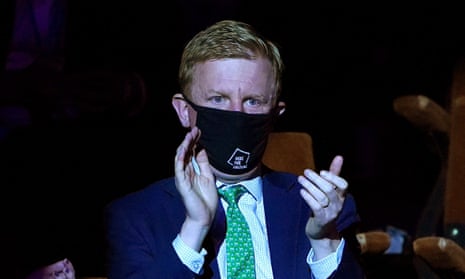The chair of an influential museum group has resigned after an academic whose work calls for “decolonising” the curriculum was dropped from the board, amid reports of a government-sanctioned culture war.
Sir Charles Dunstone, the founder of Carphone Warehouse, reportedly resigned from the Royal Museums Greenwich board after the culture secretary, Oliver Dowden, refused to reappoint trustee Dr Aminul Hoque, an education academic at Goldsmiths, University of London.
The development is the latest in a series of vetoes by ministers seen as an attempt to assert authority over appointments to media and cultural institutions. The government refused to reappoint two women to Channel 4’s board of directors, including one of only two women of colour, last month.
It is understood that the government is increasingly blocking reappointments to public sector roles to bring in new individuals to organisations.
In a sign that ministers believe that a battle against “woke” culture plays well with voters, there have been a number of recent attempts to ratchet up a culture war. Following the Black Lives Matter protests last summer, Dowden threatened to cut funding to museums and galleries that removed statues associated with British colonialism.
In a warning to institutions last October, Dowden wrote: “As publicly funded bodies, you should not be taking actions motivated by activism or politics. The significant support that you receive from the taxpayer is an acknowledgment of the important cultural role you play for the entire country.”
Speaking to the Financial Times, Hoque said he was “shocked, disappointed and baffled” by the veto against his reappointment. Colleagues at Royal Museums Greenwich described him as a “devoted and conscientious” trustee, the newspaper reports.
Dunstone had informed the academic about the veto at the beginning of the year, but there was no explanation from the government. After contacting the culture department, Hoque was told there was no “automatic presumption” of reappointment to the board.
Royal Museums Greenwich declined to comment.
A government spokesperson said: “All reappointments are considered in line with the government code for public appointments. There is no automatic presumption of reappointment, and indeed in the vast majority of cases, fresh talent is added with new appointments made.”
The government announced plans earlier this year to appoint a “free-speech champion” and said it would warn heritage bodies against taking significant steps in reevaluating British history.
The Department for Education’s “free-speech champion” for higher education will be accompanied by changes to the law to guarantee the preservation of free speech in universities.
Peter Riddell said earlier this week that the government had “actively sought to appoint allies to the boards of public bodies” over the past 18 months.
“This is not the first time this has happened. Such attempts tend to go in waves,” Riddell said. “What is different now is the breadth of the campaign and the close engagement of 10 Downing Street.”
Royal Museums Greenwich oversees several prestigious cultural institutions including the Cutty Sark, the Royal Observatory and the National Maritime Museum, which is a designated Unesco world heritage site.
